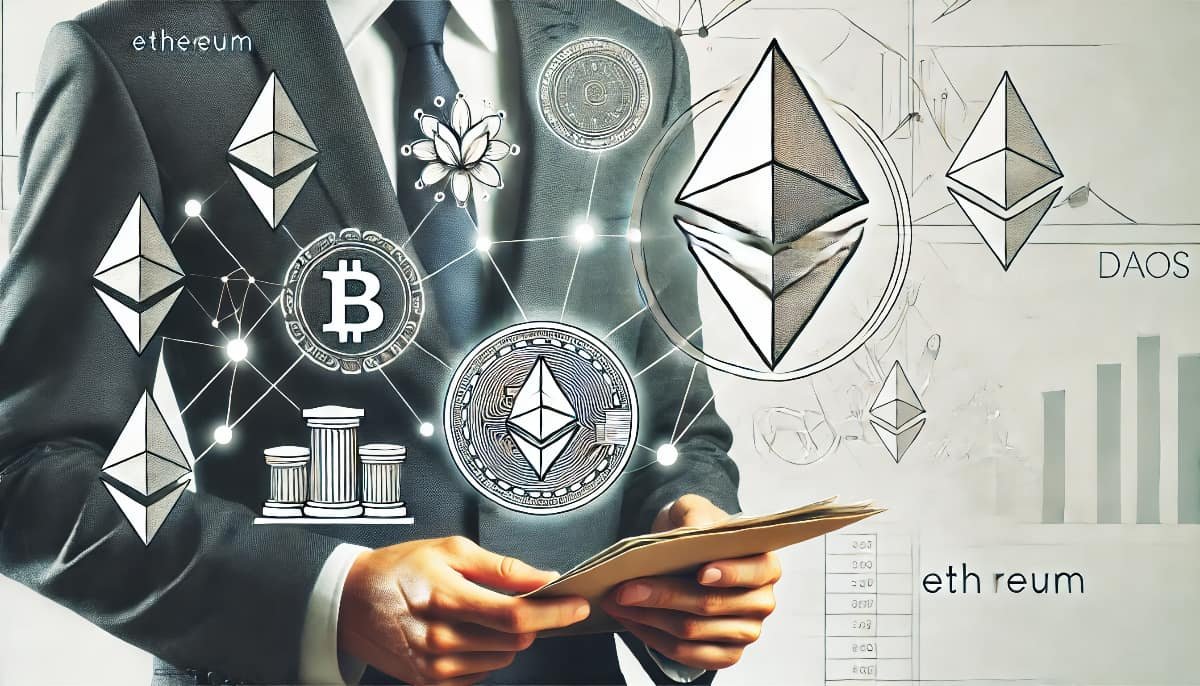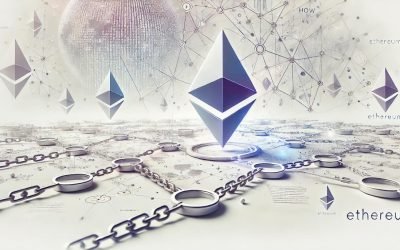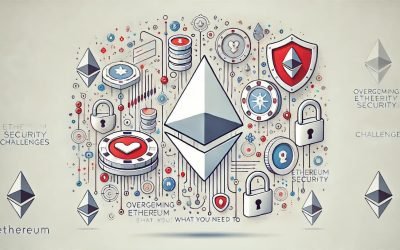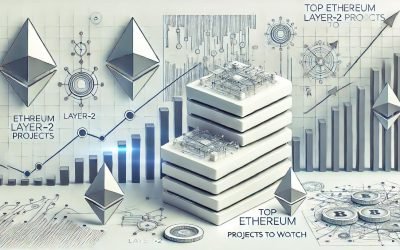The Evolution of Decentralized Governance
In the rapidly evolving landscape of blockchain technology, Ethereum has emerged as a pioneering force, not just as a cryptocurrency but as a platform for decentralized applications (dApps). One of the most transformative innovations within the Ethereum ecosystem is the concept of Decentralized Autonomous Organizations (DAOs). These entities are reshaping the way governance is perceived and executed, offering a new paradigm that is both inclusive and transparent.
Understanding DAOs: A Primer
Before delving into the transformative potential of Ethereum DAOs, it is essential to understand what DAOs are and how they function. A Decentralized Autonomous Organization is an entity represented by rules encoded as a computer program that is transparent, controlled by organization members, and not influenced by a central government. DAOs are essentially internet-native organizations collectively owned and managed by their members.
Key Characteristics of DAOs
- Decentralization: Unlike traditional organizations, DAOs operate without a central authority. Decisions are made collectively by the members.
- Autonomy: DAOs are self-operating entities that execute predefined rules encoded in smart contracts.
- Transparency: All transactions and rules are recorded on the blockchain, ensuring complete transparency.
- Token-based Governance: Members hold tokens that represent their voting power within the organization.
The Role of Ethereum in DAOs
Ethereum, with its robust smart contract capabilities, provides the ideal platform for the creation and operation of DAOs. Smart contracts are self-executing contracts with the terms of the agreement directly written into code. These contracts facilitate, verify, and enforce the negotiation or performance of a contract, making them indispensable for DAOs.
Smart Contracts: The Backbone of DAOs
Smart contracts on the Ethereum blockchain enable DAOs to function autonomously. These contracts define the rules and execute the agreed-upon decisions without the need for intermediaries. This automation reduces the potential for human error and bias, ensuring that the organization operates as intended.
Advantages of Ethereum DAOs
Ethereum DAOs offer several advantages over traditional governance models, making them an attractive option for various applications.
Enhanced Transparency and Trust
One of the most significant advantages of DAOs is their inherent transparency. All transactions and decisions are recorded on the blockchain, making them publicly accessible and verifiable. This transparency fosters trust among members and stakeholders, as they can independently verify the organization’s actions.
Inclusive Decision-Making
DAOs democratize decision-making by allowing all members to participate in the governance process. Token holders can propose and vote on changes, ensuring that the organization reflects the collective will of its members. This inclusivity contrasts sharply with traditional hierarchical structures, where decisions are often made by a select few.
Reduced Operational Costs
By automating processes through smart contracts, DAOs can significantly reduce operational costs. There is no need for intermediaries or extensive administrative overhead, as the code executes predefined actions. This efficiency can lead to cost savings and more streamlined operations.
Challenges and Limitations of DAOs
While Ethereum DAOs offer numerous benefits, they are not without challenges. Understanding these limitations is crucial for their successful implementation and adoption.
Technical Complexity
Creating and managing a DAO requires a deep understanding of blockchain technology and smart contracts. This technical complexity can be a barrier to entry for individuals and organizations without the necessary expertise.
Security Risks
Smart contracts are only as secure as the code they are written in. Vulnerabilities in the code can be exploited, leading to potential financial losses and operational disruptions. Ensuring the security of smart contracts is paramount for the success of DAOs.
Legal and Regulatory Uncertainty
The legal status of DAOs remains uncertain in many jurisdictions. As decentralized entities, they do not fit neatly into existing legal frameworks, posing challenges for compliance and enforcement. This uncertainty can deter potential participants and investors.
Use Cases of Ethereum DAOs
Despite the challenges, Ethereum DAOs have found applications in various sectors, demonstrating their versatility and potential.
Decentralized Finance (DeFi)
One of the most prominent use cases for DAOs is in the realm of decentralized finance. DeFi platforms leverage DAOs to manage lending, borrowing, and trading activities without intermediaries. This decentralization enhances transparency and reduces costs, making financial services more accessible.
Decentralized Autonomous Communities
DAOs are also being used to create decentralized communities where members can collectively manage resources and make decisions. These communities can range from online forums to real-world cooperatives, offering a new model for collective ownership and governance.
Venture Capital and Investment
DAOs are revolutionizing the venture capital industry by enabling decentralized investment funds. Members can pool their resources and vote on investment decisions, democratizing access to venture capital and reducing the influence of traditional gatekeepers.
Case Study: The DAO
One of the earliest and most well-known examples of a DAO is “The DAO,” which was launched in 2016. Although it ultimately faced significant challenges, The DAO provides valuable insights into the potential and pitfalls of decentralized governance.
The Rise and Fall of The DAO
The DAO was created as a decentralized venture fund, allowing token holders to vote on investment proposals. It quickly raised over $150 million in Ether, demonstrating the immense interest in decentralized governance. However, a vulnerability in the smart contract code was exploited, leading to the loss of a significant portion of the funds. This incident highlighted the importance of robust security measures and thorough code audits.
The Future of Ethereum DAOs
Despite the challenges, the future of Ethereum DAOs looks promising. As the technology matures and best practices are established, DAOs have the potential to transform various industries and redefine governance models.
Improved Security and Auditing
Advancements in smart contract security and auditing tools will play a crucial role in the future of DAOs. Enhanced security measures will mitigate risks and build trust among participants, encouraging wider adoption.
Interoperability and Integration
The development of interoperability protocols will enable DAOs to interact seamlessly with other blockchain networks and traditional systems. This integration will expand the potential use cases and enhance the functionality of DAOs.
Regulatory Clarity
As regulatory frameworks evolve, clearer guidelines for DAOs will emerge. This clarity will provide a more stable environment for DAOs to operate, attracting more participants and investors.

Conclusion
Ethereum DAOs represent a groundbreaking shift in the way organizations are governed. By leveraging blockchain technology and smart contracts, DAOs offer a transparent, inclusive, and efficient model for decision-making. While challenges remain, the potential benefits of DAOs are immense, promising to transform industries and empower individuals. As the technology continues to evolve, Ethereum DAOs will undoubtedly play a pivotal role in shaping the future of decentralized governance.
Q&A Section
| Question | Answer |
|---|---|
| What is a DAO? | A Decentralized Autonomous Organization (DAO) is an entity represented by rules encoded as a computer program that is transparent, controlled by organization members, and not influenced by a central government. |
| How do DAOs operate? | DAOs operate through smart contracts on the blockchain, which define the rules and execute decisions autonomously without intermediaries. |
| What are the advantages of Ethereum DAOs? | Ethereum DAOs offer enhanced transparency, inclusive decision-making, and reduced operational costs. |
| What are the challenges faced by DAOs? | DAOs face challenges such as technical complexity, security risks, and legal and regulatory uncertainty. |
| What is the future of Ethereum DAOs? | The future of Ethereum DAOs looks promising with advancements in security, interoperability, and regulatory clarity expected to drive wider adoption. |














 How to trade CFD? (00:49)
How to trade CFD? (00:49) How to trade binary options*? (01:22)
How to trade binary options*? (01:22) Forex. How to start? (01:01)
Forex. How to start? (01:01)